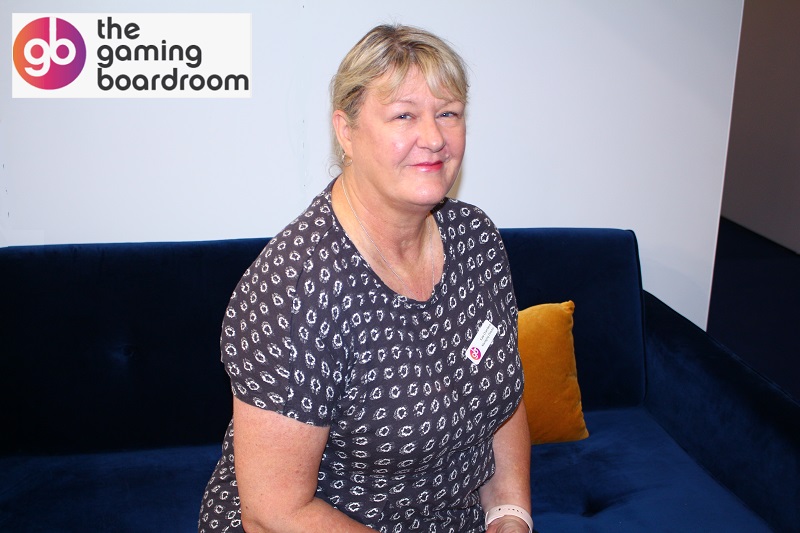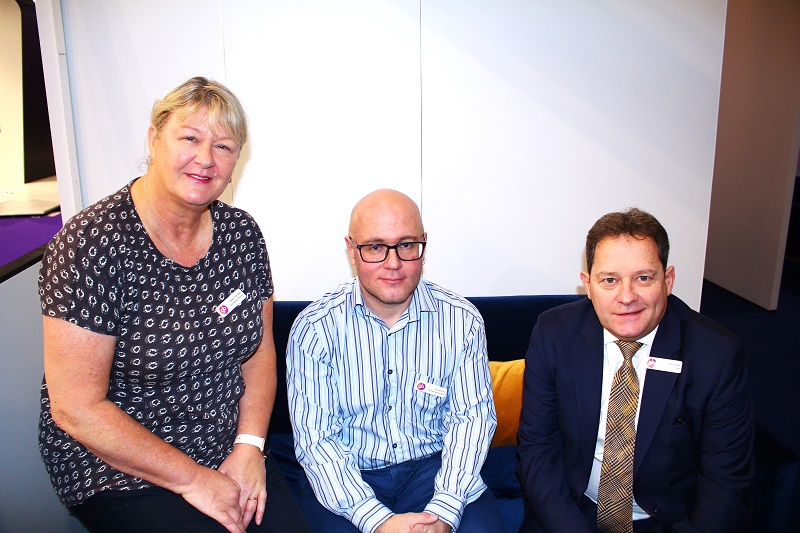
You and your team have great experience in the sector. I’m sure that you have seen something that we haven’t about a lack in terms of leadership, in the way of how companies should address the industry. What’s that lack that you have seen that you are going to fill and what’s the goal of TGB?
That’s a long question, but I’ll try to answer it. I think that when I left Clarion, I asked myself how can I support the people that I had met and made friendship with. What could I give back to the gaming industry? Because everyone in gaming has been so welcoming to me. So I spoke with 100, 150 stakeholders to better know what was missing in their daily activities. There was a long list of answers, but at least three in particular came up from time to time. One was that we spent a lot of time trying to keep up to date. You have to read a lot of information. So how can we do to reduce that time? The second issue was that the people I was speaking to wanted to connect with other people overseas, but that wasn’t always possible in physical terms. I thought of a way of making them easier that access, to get them connected much more efficiently. A third element was offering tools and advice for developing different, better leadership styles. I have run Clarion Gaming for 15 years and we did a lot of huge conferences. In terms of budgeting, now, it’s more difficult to attend such big events. At Fulwood Media, we decided to develop The Gaming Boardroom (TGB), and one key issue is to organize digital events, webinars, podcasts. We will also have some small in-person gatherings, for 10 to 15 executives. We will focus on solutions and put some experts in the room. Of course, this is not a one size fits all philosophy. It’s about trying to find the solution that’s right for your company. I’m talking about creating a community and delivering executives some leadership development tools. Helping them to save time, to better connect so they can learn and support each other in a peer-to-peer network.
Let’s imagine I’m a leader of a gaming company. How can I be a member of TGB? In which way I can participate?
There are three levels of membership: Associate, Executive, and Partner. The first level is free of charge. If you register, you will get a gaming newsletter every day taking the top stories that have been released on the previous 24 hours. You’ll already be part of our community. The next level will give you access to the performance development tools, a more specific business newsletter, and some of the podcasts and webinars. Then there is the top level. It gives you access to everything you get in all the other levels, but you also receive the context of what all of this information means for the wider gaming industry. This level is focused on C-suite and Board Member professionals. You can decide which level is right for you and move from one level to the other. Each has a full year membership, with a three-month free trial period. Executives can contact me directly or give me a call. I’ll answer each and every request.

I want to speak about two challenges, one for each question. The first one will be leadership. Based on your position as a powerful woman of the industry, how can new leaders include in their companies more info about Diversity, Equity, and Inclusion (DEI) issues, about minorities, or even create areas to work on these subjects in a more profound manner? How can they face this challenge in a positive way?
I think that it’s a hard task. Making everybody equal is not going to happen quickly. There have been decades of stereotypical behavior where the men would go out to work and the woman would stay at home to raise the children. But, you know, life doesn’t develop like that anymore. The cost of living is too expensive, so women must go out to work too. The best advice that I can give to any executive, no matter which position he/she has, is to be true to yourself. You have to be confident and believe in yourself. Today, finally, there’s more recognition to what women and other minorities can contribute to a company, the wonderful values that they bring, whether they’re leaders, or managers, or just regular employees, There’s something that they provide which is different and unique and beneficial to an organization. I mean, in my case, I have found people in the gaming industry describing me as fair, extremely polite, kind, and feminine at the same time. I think a big mistake that a lot of women make is to become more assertive, more ‘tough’, and try to be like men. In my opinion, the best thing they should do is acting in a professional way, dressing appropriately, not try to get into male dominated spaces or conversations because they just can’t. There are issues, men’s talks with comments in which women feel uncomfortable and that must be said, made known, to respect the differences. Men must change in that sense, be more inclusive, and I think they are doing it, little by little. It’s like a series of podcasts I’m doing talking to leaders about these subjects, about men and women who have led within the industry. We all have personal problems, insecurities, and it’s honest to admit them and to publicly talk about them. That’s one of the big attributes that women have: to verbalize these issues, to smile, to soften some conversations, to make others (including C-Level executives) feel safe in an environment of trust, with common topics to discuss.
That’s great! The other challenge is related to how these mature, veteran leaders can share their visions and connect with employees from the younger demographics, like Centennials or Millennials? These youngsters may have other skills and abilities. They have not enough experience, but they are enthusiastic. But they also show a different way of seeing things, including gaming. Is it possible for leaders to maintain their work styles and talk to them in the traditional way they did with people from previous generations?
Regarding Millennials, they are very different, yes, but they also are in their forties, so these are not kids we’re talking about. But, beyond the demographics, in this case, the challenge of a leader is to build a strong team together, that is inclusive and that allows each one to make its contribution to the group. You need to take them on a journey, and if they feel that they’re part of the journey and that they’re able to influence the outcome, then, you will get them engaged in what you’re doing. The worst thing you can do is to think of a strategy above their heads. Show them the future, give them a clear path, and they will follow you.
The final question is related to the future for TGB. You will organize two meetings (‘CEO Retreats’), one in May 2023 and one in November 2023, for European and for US gaming executives, respectively. What are these gatherings going to be about?
Yes, we will bring a group of senior gaming leaders together to do some research on what issues they have been considering lately. Trends they feel are coming up, new technologies, some topics they think they need to know more about. The concept is to have a small group of decision makers to really create an environment which allows them to freely discuss solutions to certain problems of the industry. It’s a leadership community, which, ultimately, is what The Gaming Boardroom is all about.

